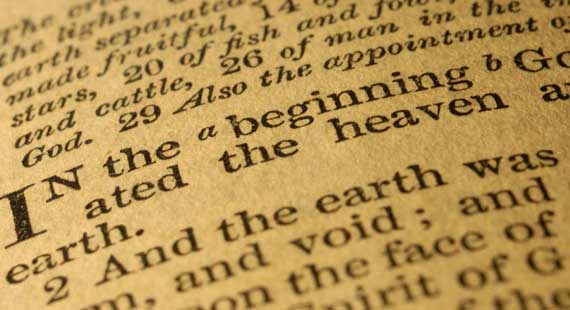A biblical response to the challenges of diversity
The last few months have been considerably difficult for all of us. The COVID-19 pandemic has impacted our communities, economies, routines, health and hearts.
As believers, our first response should be looking to the Word of God, listening to the voice of God in prayer and being led by the Spirit of God in our actions. There are many Bible verses about diversity and Bible verses about racism that we can learn and teach from. And that is what our church leaders have done. I am so proud of the way churches have pivoted to continue to stay on mission in advancing the gospel. We are truly better together!
The last few weeks have been extremely difficult for our African American brothers and sisters and for all who see the unique challenges that they face. The brutal death of George Floyd has fueled emotions and outcries of injustice resulting in demonstrations and much-needed conversations in our country about race.
My heart has been broken over George Floyd. My heart is also broken over the conversations I have with many of my African-American friends who can picture themselves, their fathers, sons, friends and family under the knee of unjust acts like this.
I’ve seen the bandwidth of responses to George Floyd. Some have decried the injustice and walk side by side with others in peaceful protest. Some have made public statements against racism, while others declare this is simply a political scheme. Some condemn the action of these officers, while others expressed support for police officers in general.
Some have begun reading on the subject, while others have stepped into support systems to change policy. Some have screamed, “black lives matter!” while others have screamed back, “all lives matter!” Some have been afraid to act or speak for fear of what others might think and what they might lose by stirring the pot in such an emotional time.
But we are not others. We are Christians.
So, what should Christians do?
The first response of every Christian to any crisis is to go to God’s Word. The first tenet of our affirmation of faith says:
We believe that the Bible is the Word of God, fully inspired and without error in the original manuscripts, written under the inspiration of the Holy Spirit, and that it has supreme authority in all matters of faith and conduct.
If the Bible is the Word of God, fully inspired and without error, it makes sense for the Christian to let the Word be our judge rather than our personal judgments. If the Bible has supreme authority in all matters of faith and conduct, doesn’t it make sense that we would take our cues on what to believe and how to respond from the Bible rather than pals, preferences or political party?
As such, I’d like to take this opportunity to walk through bible verses about diversity, race in the bible and biblical diversity. A few weeks ago, Converge’s Executive Management Team took time to walk through the Bible, reminding ourselves of the biblical basis for our Office of Biblical Diversity.
In the Bible, we see God’s words, his heart and his expectations for believers in this area. We also see the response of God’s people, good and bad, over this issue. Over the next few weeks, I will share the main points of the content of those conversations with you. This week we will look at the Old Testament, and over the following weeks, we will look at the New Testament and then a summary paradigm of action.
While this is not a doctrinal statement or a case statement, it will have some features of those things. My greatest hope is that these thoughts will help you on your journey on how to respond.

Foundations for biblical diversity in the Old Testament
The Imago Dei meaning
Genesis 1 is a beautiful passage depicting God’s creation of the universe. It reminds us of his ultimate supremacy and the existence and work of the Trinity from the very beginning. In the creation story, one cannot help but notice the unique fashioning of humankind.
In a conversation among the Trinity, God sets forth the plan for us:
Then God said, “Let us make mankind in our image,in our likeness, so that they may ruleover the fish in the sea and the birds in the sky, over the livestock and all the wild animals, and over all the creatures that move along the ground.” So God createdmankindin his own image, in the image of God he created them; male and female he created them. Gen. 1:26-27
All humankind is made in the image of God. Genesis 2 gives even more detail to God’s design. While all other things were spoken into existence, the picture of the formation of man and woman was as if we were a piece of art (Gen. 2:7,22). This idea is repeated in Ephesians 2:10, calling us the poema, the workmanship of God.
Psalm 139:13-14 says that God knit us together and we are fearfully and wonderfully made. Genesis 9:6 declares the incredible value of human life, tying it to the Imago Dei (meaning: the image of God). The Bible declares that no person is the result of random processes, accident or mistake, but that humankind was the crowning glory of the creation of God.
The Imago Dei infers that we mirror God on some level, although now tainted by sin. That thought should not be taken in a posture of expectation or entitlement, but with true humility and overwhelming gratefulness to God that he would be so kind to us by setting us apart from the rest of his creation.
God has a unique connection and care for humans. His designing humankind in Imago Dei tells us that all people, regardless of race, sex or ethnicity, have intrinsic value. The Imago Dei calls us to a higher calling than any other creation of God and requires us to see others with uncompromisable value and esteem.

Regardless of the background, health, stage of life, ability or disability, all people are equal in worth and dignity and are to be treated as such. Understanding that all men and women are created in the image of God means that we see all other humans as equally valuable, beautiful and dignified, regardless of race, ethnicity, color, class or sex.
The underlying worldview informed by Imago Dei does not allow for racism, sexism or classism. It is impossible to hold to the Imago Dei and escape this truth.
The focus of the Abrahamic Covenant
In Genesis 12, Abram is called away from his country, people and family, to take a journey that will result in God building a nation from his descendants. God makes a covenant with Abram and promises:
I will make you into a great nation, and I will bless you; I will make your name great, and you will be a blessing. Gen. 12:3
The next 10 chapters of Genesis walk through the ups and downs of his journey with God. In Genesis 17, God changes his name from Abram (father is exalted) to Abraham (father of multitudes) to reaffirm his promise. When Abraham is 100, God provides him a son, Isaac (Gen. 21:3). However, in Genesis 22, God tests Abraham and asks him to sacrifice his son. As Abraham takes steps of obedience and is willing to trust, God reiterates his covenant:
I will surely bless you and make your descendants as numerous as the stars in the sky and as the sand on the seashore. Gen. 22:17
In the story of Abraham, we see both the power and faithfulness of God. We recognize that God knows all things and is sovereign over all things and that we can trust him even we cannot see the way. The story reminds us that when God makes a covenant, we can be guaranteed that he will do what he says he will do.
However, what we sometimes miss as we read these passages is the greater purpose of God in the blessing of Abraham. In Genesis 12, God makes a promise to Abram, not only to bless him but that
“all peoples on earth will be blessed through you” (Gen. 12:3). In Genesis 22, he reiterates his covenant to Abraham but reminds him of the greater purpose: “and through your offspring all nations on earth will be blessed, because you have obeyed me.” (Gen. 22:18)
God’s covenant blessing of Abram had all the nations of the earth in view. His promise to Abraham would have the potential to ripple in its impact to touch the lives of every person in every generation through his seed, which is Jesus (Gal. 3:16).
In other words, it has always been the plan of God for the people of God to bless the people of the world with their presence, actions and words, resulting in the glory of God through the actions of his people (Psalm 67). Even the ones who didn’t seem to deserve it (see Jonah).
Scripture is clear: The people of God are blessed to be a blessing to the nations. God is not only the God of Israel but the God over all the nations (Mal. 2:10).
As we will see in our study of the New Testament, it has always been God’s plan for all the people of the earth to worship him. As such, it has been his expectation for the people of God to actively speak and live in a way that would demonstrate God’s desire to reach people of all backgrounds, ethnicities, cultures and races.

Care for the sojourner and foreigner
The giving of the law to the people of Israel escaping from Egypt is of great significance. God is setting a people apart for himself, establishing them as a people who are consecrated, instructed in a way that honors God.
In the giving of the law, God not only remembers the people who escaped from Egypt but consistently addresses the sojourner and foreigner who will live among them. In passages like Leviticus 19:33-34, the Israelites are told to treat people from different cultures and backgrounds as if they were “native-born.”
In other passages, they are told to show kindness (Ex. 22:21), generosity (Lv. 23:22) and love (Dt. 10:19). They were to show redeeming justice because they experienced this from God in Egypt (Dt. 24:17-18 and 27:19).
As they are about to go into the promised land, he instructs the people of God to not only teach the Word of God to their children, but to the foreigners among them (Dt. 31:9-13). In fact, God promises to draw such people to himself (Isaiah 56).
God’s attention to the physical, emotional and social needs of those who don’t look like us, speak like us or live like us is significant. God encourages the Israelites to integrate them into everyday interactions of society and spirituality.
While the Old Testament law is insufficient and incomplete, the existence of these passages in the law also shows that even in the systemic policies of their community, special instruction was given by God to the dominant culture to acknowledge, protect and provide for others.

The unbreakable tie between righteousness and justice
The Old Testament is replete with verses about righteousness. Righteousness reflects the character of God as his priority for his people.
In numerous places, the emphasis on righteousness is accompanied by an expectation to administer justice. The justice referred to in these passages is not done so as a legal term (court systems) but as a relational term (how we interact with our community and circumstances as a people).
The partnership of justice and righteousness sets the foundation for the book of Proverbs (Pr. 1:3). Bruce Waltke, in The Book of Proverbs: Chapters 1-15, states, “The righteous … are willing to disadvantage themselves to advantage the community; the wicked are willing to disadvantage the community to advantage themselves.” God distinguishes the righteous from the wicked in how they interact with the community. God condemns selfishness and rewards compassion and generosity.
The verses tying righteousness with justice are all over the Old Testament. Deuteronomy 16:20 expresses God’s expectation that the people of God would lead with justice. Amos 5:24 uses the words seemingly as interchangeable:
But let justice roll on like a river, righteousness like a never-failing stream!
Justice and righteousness are intertwined in intervening for the robbed, wronged and innocent (Jer. 22:3). It demands fairness with the absence of partiality or favoritism (Lev. 19:15). Both are considered a requirement for the people of God (Micah 6:8). The lack of justice in the life of God’s people hinders their worship of God (Pr. 21:3), and their presence brings joy (Pr. 21:15) and blessing (Ps. 106:3).
It should be clear that it was always God’s desire that his righteous people intervene, champion and support those in need with justice. Many of the verses mentioned are condemnations against the people of God when they did nothing, reminding us that inaction in times of injustice grieves the heart of God. As the writer of James says:
If anyone, then, knows the good they ought to do and doesn’t do it, it is sin for them. James 4:17
The call to end oppression
Oppression is prolonged cruel, unjust treatment or control of others. It occurs when a dominant person, people or culture tries to maintain their power through violence, exploitation or marginalization.
Oppression is burdensome, evil and unjust. Oppression breaks God’s heart.
Throughout the Bible, God acts against oppression. He does so with the people of Israel in Egypt as he rescues them from their plight (Ex. 2:23-25). He does it at least seven times in the book of Judges. During the reigns of Saul, David and Solomon, we see God intervene on behalf of his people. Many of the prophets tell of God’s intervention in times of oppression. God intervenes in times of oppression.
God intervenes and he calls his people to do the same thing. Later in Israel’s history, he condemns those who oppress and states that they do not know him (Je. 22:13-17). He also condemns those who see oppression and do nothing about it (Ez. 16:49).
The Old Testament contains a quadrilateral focus of relieving oppression, focusing on the widow, orphan, poor and foreigner (Zech. 7:10). The actions God desires include speaking out and defending (Pr. 31:8-9), intervening with honesty and fairness (Mal. 3:5) and acting in generosity (Dt. 15:11).
The use of power for good
It has always been God’s expectation that those who have power use it for the good of others. God demonstrated this himself in the creation of humankind and the sending of his Son to redeem us. While this theme seems like a “given,” the fallen nature of humanity forces God to continually point out our need to live for something bigger than ourselves.
The teaching of Scripture is that power and influence are stewardships from God (1 Chron. 29:12) to be used to advance God’s purposes. When leaders refuse to use this stewardship to do the will of God, it is not beyond him to replace those leaders (Dan. 2:21, Is. 40:23, Ps. 37:27-29, 1 Sam. 2:30) or to place them under his judgment (Is. 10:1-4).
This aligns with God’s call for his people to take care of the widow, orphan and foreigner, free the oppressed, feed the hungry and serve their community (Is. 58:6-8). It is God’s expectation that his people do good (Micah 6:8) to accomplish his purposes.
It is never the option of the people of God to do nothing or say nothing.
As we learned before, God is a God of righteousness and justice.
He expects his people to be humble, broken and self-controlled, hungering for righteousness while showing mercy and stepping into the gap between the oppressed and their oppressors, regardless of what we receive in return (Mt. 5:3-12). We are to be winsome warriors who do this in such a way that it brings light to the situation and glory to God through our good deed exemplary lives and winsome words (Mt. 5:13-16).
Final thoughts
There are many more angles at God’s heart for biblical diversity in the Old Testament. We could go the opposite direction and also address the false doctrine of the curse of Ham (Gen. 9:25) that Christians used for centuries to justify slavery or the misinterpretation of Deuteronomy 22:9 to ban marriages between ethnicities (Although God’s response to the questioning of Moses’ marriage to Zipporah (Numbers 12) should give us his view!). But those conversations and themes, while interesting and heartbreaking, are more evidence of bad theology than good theology.
This is only the first installment in our conversation discussing bible verses about diversity. Hopefully, you will open your Bible and find even more than this general overview of why we at Converge have prioritized this conversation as a part of our efforts to reach the world with the gospel of Jesus Christ.
In the meantime, walk with God, study his Word, live in his Spirit and encourage his people to be on mission, helping people from all backgrounds and beliefs meet, know and follow Jesus.
God, give us the wisdom to know the right thing to do and the courage to do it.
Check out these great resources to help you and your church become biblically diverse and sign up to receive more articles like this.



